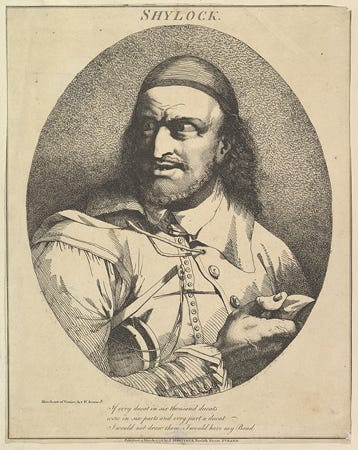
RASHI, RAMBAM and RAMALAMADINGDONG
A Quizbook of Jewish Trivia Facts & Fun

A Quizbook of Jewish Trivia Facts & Fun
Theater productions have led to criticism and protest from the Jewish community for centuries, going back at least to Shakespeare’s portrayal of Shylock, the Jewish moneylender in The Merchant of Venice. But the Jewish contribution to the theater world has been significant, especially in musical theater, which has been dominated by such lyricists and composers as Oscar Hammerstein II, George and Ira Gershwin, Jerry Herman, Alan Menken, and Stephen Sondheim. And Fiddler on the Roof, the story of Tevye the milkman and his family’s and community’s attempts to maintain their Jewish ways in Czarist Russia is one of the most widely produced musical theater productions of all. Meanwhile, last year in London, the Royal Court Theatre apologized following criticism of their production of Rare Earth Mettle, a show about a billionaire who was attempting to monopolize the earth’s resources. The character’s original name was Hershel Fink, but after complaints that this was an antisemitic stereotype, the character’s name was changed to Henry Finn. And last month in London, The Icarus Theatre Collective canceled a planned production of a show because of criticism from the Jewish community. What was the controversy about?

Shylock (Twelve Characters from Shakespeare) is in the public domain, under CC0 1.0 Universal (CC0 1.0) via Wikimedia Commons
A. The Icarus Theatre Collective was preparing a version of West Side Story where instead of a romantic relationship between the Italian Tony and the Puerto Rican Maria, the ill-fated relationship would be between Leora, an Israeli girl, and a Palestinian boy, Asif. Though the producers of the show reached out to local Israeli and Palestinian community members for their input and support as they developed the show, a critical article appeared in a local Jewish newspaper which provoked protests, and that was followed by protests from the local Muslim community as well. Producers shelved the production out of fear for the safety of the actors and employees of the theater.
B. The company had planned to produce a version of Romeo and Juliet where the Montagues were Nazis, with Romeo being a member of the Hitler Youth Movement, while Juliet and the Capulets were part of the Jewish community. After much criticism the company apologized and canceled the production while noting that, unlike in the original production where the Montagues and the Capulets were “Two households, both alike in dignity,” their production would have shown the “Nazi” Montagues as the bad guys.
C. The company had planned to produce a version of Romeo and Juliet where Romeo would be portrayed as a member of the Hitler Youth Movement and Juliet was part of the Jewish community. The company was criticized because the casting notice did not specify that they were looking for a Jewish actress to play the Juliet part. The theater management canceled the production and issued an apology noting that the casting announcement was supposed to specify a preference for a Jewish actress, but that “Our casting director removed key information and we failed to notice.”
D. The producers announced plans to mount a new production of The Diary of Anne Frank where the people living in the attic were members of the Roma community rather than Jews. The theater's artistic director stated that “the Anne Frank story is ultimately a story about all of us who have fallen victim to hate. We hope to share that message by hearing from the Roma girl Analetta instead of the Jewish Anne.” However, protests arose within the Jewish community, with one rabbi arguing that “while the story of Roma persecution by the Nazis is an important one, it is not acceptable to replace the Jewish Holocaust story with this other narrative.” As a result the theater company canceled the production and instead produced the classic show The Glass Menagerie.
E. The theater group was in the process of staging a musical production of a show based on the Rodgers and Hammerstein musical Oklahoma. The new version took place in Germany in the 1930’s, rather than Oklahoma at the turn of the 20th century. One plot line changed the focus of the core community conflict, with a song’s revised lyrics stating “Oh the Nazis and the Hebrews should be friends.”
✡ ✡ ✡ ✡ ✡ ✡ ✡ ✡ ✡
© 2025 MMJZ Services, Inc.